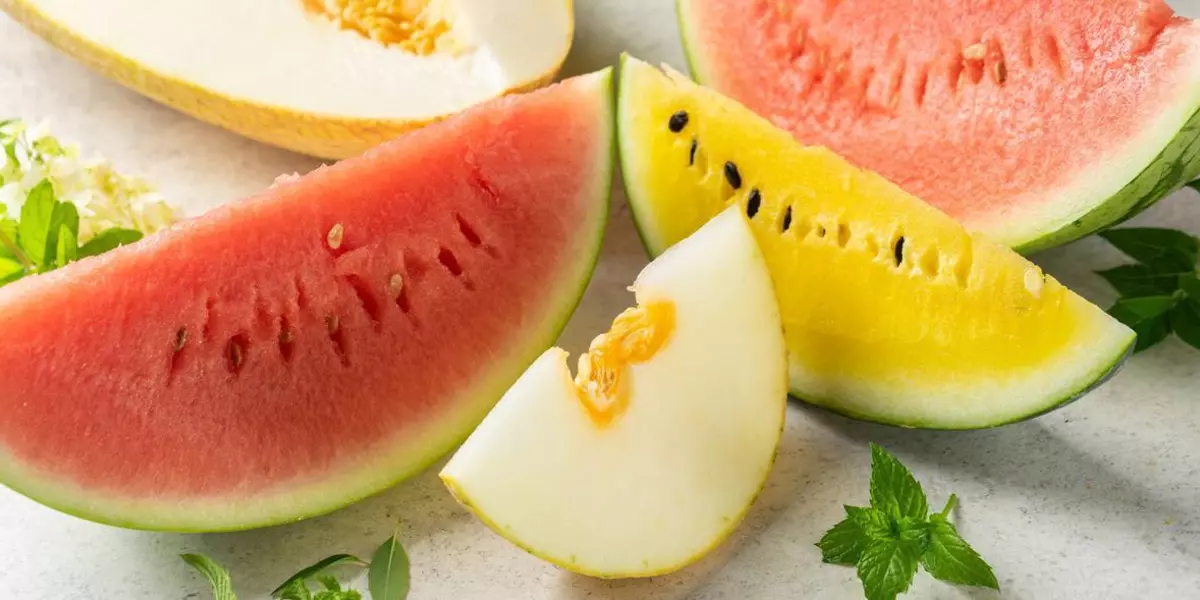
The fruits of these melons consist of approximately 90% water (there is slightly more of it in a watermelon than in a melon). This means that wonderful juicy treats, when consumed wisely, will not add extra pounds to you. Please note that the calorie content of watermelon is lower – depending on the variety, 27–25 kcal versus 30–35 for melon. At the same time, the pulp is superbly refreshing, which is very important in the summer heat.
For the same reason (the predominance of water), watermelon and melon can be considered an effective diuretic of natural origin. Ideal for fasting days!
We figured out the volume and role of water in fruits. But what accounts for another 10% of the pulp? Mostly these are sugars – glucose, fructose, sucrose. If we talk about their content per 100 g of product, then it is almost the same: 6 grams in watermelon and 8 in melon. That’s a pretty serious amount of carbohydrates. But even those who seek to reduce calorie intake should not give up one or two thin slices of delicious fresh dessert. Let’s not forget about fiber. Even though there is little of it in the fruits of melons, it can improve digestion, acting as a prebiotic.